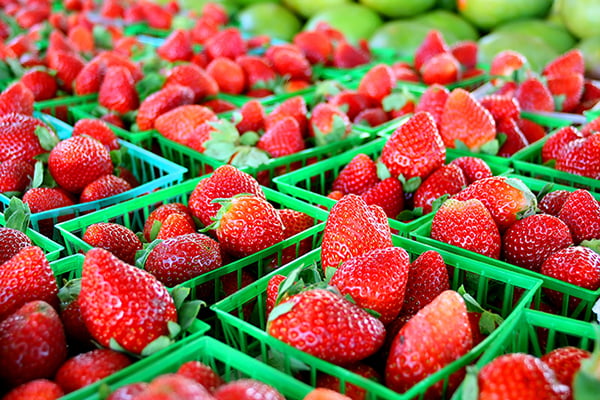High quality produce with a focus on the best of British is a key opportunity for hospitality businesses to thrive beyond the cost-of-living crisis, says hospitality buying specialist Lynx Purchasing.
“There are some very difficult choices for operators ahead,” says Rachel Dobson, Lynx Purchasing managing director. “It’s either keeping menu prices low, or serving high quality produce that offers consumers a genuinely different choice when compared to eating at home. Consumers may be going out less often, but many are looking for better quality when they do.”
As Lynx Purchasing publishes the Summer 2023 edition of its regular Market Forecast, Dobson adds: “While the Bank of England is forecasting that inflation will ease later this year, the price rises that operators have seen over the past two years are now bedded in.
“We’re starting to see some price improvements on products that have seen the biggest increases, such as dairy and oils, but higher food costs are here to stay. Once consumers start to feel more confident about spending, the opportunity for hospitality will be to add value to menus, rather than cut margins. In addition, showing support for British food producers has genuine customer appeal.”
The National Farmers Union (NFU) has recently called for closer links with hospitality, with NFU president Minette Batters arguing that “developing relationships between the out of home sector and British farmers and growers will create even more opportunities to serve up local food that is safe and fully traceable, providing the provenance the public increasingly appreciates.”
Dobson adds: “In retail, while supermarkets are not necessarily profiteering, their drive for lower prices often comes at a cost in terms of food quality. There are plenty of examples of produce where poorer quality has become the norm. Think of fruit and veg which look good but have no flavour; chicken that is intensively produced; or potatoes that are small and damaged due to extreme weather.”
Using exclusive insight supplied by the range of suppliers that Lynx Purchasing works with, as well as official inflation data, product areas highlighted in the latest edition of the Market Forecast include:
Beef and pork: The continuing high cost of rearing cattle is keeping beef prices up, and with the barbecue season moving into high gear, all popular cuts of beef, as well as mince for making burgers, are in demand. Pork prices are also at very high levels, with strong global demand.
Poultry: Continued concerns about the spread of avian flu mean restrictions on poultry have been introduced in many countries, and the supply situation can change quickly. Prices for chicken, as well as turkey and duck, continue to be high as demand for fresh, frozen and pre-made products continues.
Eggs: With egg production also severely hit by avian flu, prices for both fresh and liquid egg have seen substantial increases. Suppliers expect egg production to take some time to return to normal levels.
Dairy: Prices for milk, butter and cheese have started to come down in foodservice, following an increase in global milk production. In due course, this will also help to reduce the price of the many manufactured products which use cream.
Fresh produce: The government has increased the number of migrant agricultural worker visas by a further 10,000 this year, which should improve the availability of fresh fruit and seasonal produce across the summer.
Potatoes: The yields of larger potatoes such as bakers are extremely low, due to a poor harvest after the very hot weather last summer. Frozen chips and potato products are now seeing sharp price increases as the quality issue works through into food manufacture.
Oils: Prices for rapeseed oil are starting to fall as this year’s crop becomes available, making it a more economic option than both sunflower oil, which is still impacted by the Ukraine situation, made worse by the flooding of arable land after the recent dam destruction; and olive oil, where a drought has affected both price and supply.
Dobson adds: “Operators will have to factor continued volatility across a range of produce into their planning. Each hospitality business has to make its own decision about the trade-off between menu quality and pricing, based on its customers’ expectations. In the current market, though, trying to compete with the cheapest place town for eating out is a race to the bottom.
“Poor quality produce also contributes to food waste, for example by loss of yield during preparation and cooking, or simply when indifferent-tasting food is returned uneaten on customers’ plates. There is a real opportunity for operators to forge partnerships with British food producers and make eating out a genuinely different experience.”
A FREE copy of the Summer 2023 Market Forecast can be downloaded from the website at www.lynxpurchasing.co.uk.
